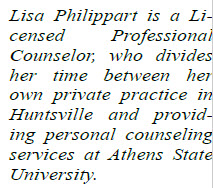A Dog Named Dexter
 By: Lisa Philippart
By: Lisa Philippart
Over eleven years ago, a dog we named Dexter came bouncing into our lives. He was a skinny, stray, yellow, Labrador-retriever mix, with fleas and worms. And he had the happiest, most loving personality of any dog I have ever met (other than Shadow. See my article from January 4, 2019.)

In the beginning, Dexter was a wild man. His energy level was always set on high. He even ran in his sleep! We didn’t think he had ever been in a house before because when we first brought him in, he leapt over our furniture like it was an obstacle course. He ran through our house knocking things over and having the best time, smiling all the while! Yes, Dexter smiles! As much as I loved Dexter already, we knew he needed some discipline if we were ever going to have peace restored to our home. Did you know you can send your dog to Doggie Boot Camp? Yup. We dropped Dexter off with the promise that he would be “manageable” in three weeks. When we returned, we had to go through some training too, but Dex was much, much better…as long as he was on a leash. My husband and I both worked during the day, so we had to find some way for Dexter to relieve his boundless energy. We decided to take him to doggie daycare. It was there that we discovered two things: First, he could be worn out! And second, that Dexter loves people, and other dogs, not so much. He was the likeable kid in school, always getting into trouble. He was expelled…twice.
So what does my Dexter story have to do with mental health? Three months ago, Dexter was diagnosed with mast cell cancer. It’s bad. But did you know that there is a veterinary oncologist in Nashville? Dogs can receive chemo treatments, and actually tolerate it better than humans. We were told that without chemo, Dex had about three months to live. With chemo, he has about 6-9 months. We have heard several times from those who are working with and treating Dexie, the following comments: “He doesn’t know he has cancer, does he?” and “He is the happiest dog on chemo that we have ever seen!” Wow! This got me to thinking about whether attitude can affect a cancer outcome. Can a positive attitude prolong a person’s/dog’s life? And conversely, does a negative attitude make cancer grow?

Attitude is defined as “a settled way of thinking or feeling about someone or something.” This attitude is often reflected in one’s behavior. I believe, as do many researchers, psychologists, and other mental health professionals that attitude has a unique and profound way of affecting our daily lives. For example, I realize that it is easier to adopt a positive attitude when life circumstances are generally good and problems are few. But when conditions change drastically in a negative way, it’s not as easy to keep a positive outlook, especially when those changes involve an illness. A cancer diagnosis can obviously affect attitude. Having to accept a life-altering disease can cause feelings of hopelessness, which can lead to a negative point of view. But it’s not necessary to allow the weight of negativity to lead you down the path of loss of control. Those feelings travel through the cycle of fear and sadness, bringing us back to that negative outlook. Mental health counselors can help those with cancer to not only recognize these emotions, and the change in relationships, but to feel more upbeat and have a better quality of life. There is no research study to support the idea that counseling interventions can reduce the risk of cancer, keep cancer from coming back, or help someone with cancer to live longer. So, with that in mind, why then should someone diagnosed with cancer choose to adopt a positive attitude if it’s not necessarily going to prolong life? In my own experience, I’ve learned that I feel better — emotionally, mentally, and physically — when I keep a positive attitude. By finding ways to look on the bright side, we can overcome negative circumstances. If nothing else, it can become a helpful coping mechanism.

No one has the right to expect a person/dog with cancer to have a positive outlook all the time, because fighting cancer is extremely difficult. Choosing a positive attitude can affect someone’s mental and emotional well-being in a constructive way. And by choosing to think good thoughts, our behavior can follow. And with my sweet Dexter, his joy for living and happy disposition continue to propel him through this life. We are grateful for Dexter every day. I’ll keep you posted on his journey in articles to follow.
By: Lisa Philippart
Licensed Professional Counselor